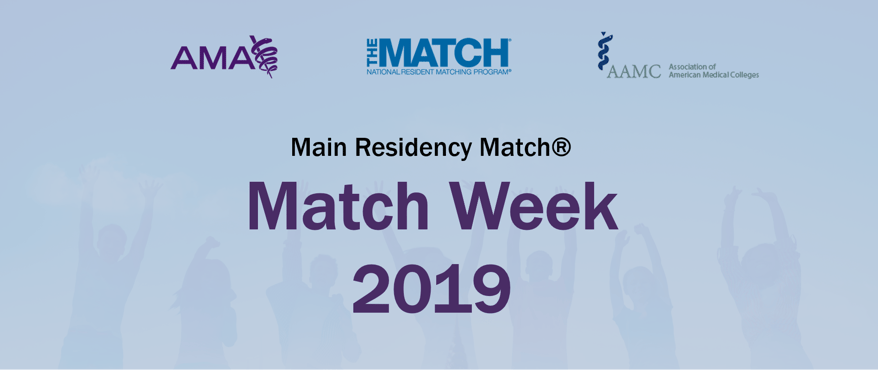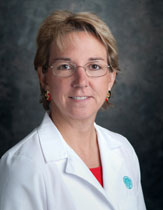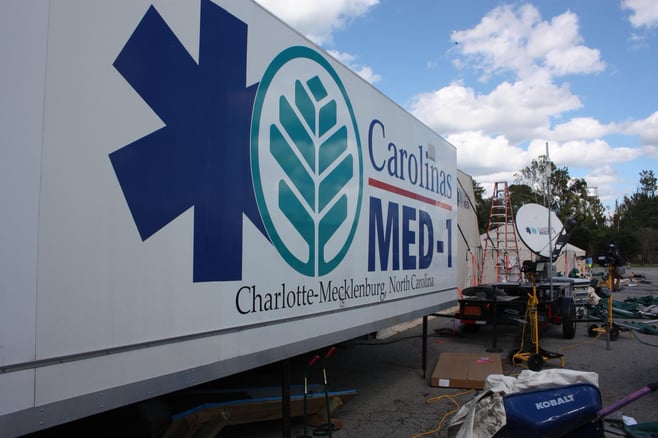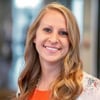
Match Day is an exciting and stressful time for medical students to discover their fate for the next three or more years. On the other side of the coin, residency program directors have also spent hours preparing for the big day by reading applications, conducting interviews, and choosing the medical students that stood out to them as potential interns.
Program Directors know what medical students are going through, since they went through the Match Day experience as graduating medical students. Unfortunately, we all know that not every medical student will be matched to their top choice. According to National Resident Matching Program, 48.5 percent of U.S. seniors matched to their first-choice programs, in 2018. This was the second lowest percentage of seniors matched to their top choice.
In honor of Match Day 2019, I sat down with Dr. Sandy Craig, to get her thoughts on Residency Match Day. Dr. Craig has been an Emergency Medicine Residency Program Director at Atrium Health in Charlotte, NC since 2010.
99.4 percent of the 2,278 available Emergency Medicine positions were filled in 2018. It may be hard for Dr. Craig and her fellow Emergency Medicine programs to beat an almost 100% fill rate from last year.

Dr. Craig attended medical school at the Medical College of Virginia and completed her training in emergency medicine at Carolinas Medical Center in July 1990. She joined the CMC Emergency Medicine faculty in 1990 and served as the associate residency director and director of the resident conference curriculum from 1991 until June 1999. Sandy stepped away from residency leadership in 1999 in order to start a family and see three beautiful daughters through their preschool years. Sandy is a member of the federal Special Operations Response Team (SORT) and a staff emergency physician for Carolinas Medical Center's mobile disaster response vehicle, Carolinas MED-1. She has been a faculty participant and judge at the annual SAEM CPC competition, a lecturer for the American College of Emergency Physicians Scientific Assembly since 1993, and has served on the Board of the Council of Residency Directors (CORD).
The photo below shows the Carolinas MED-1 vehicle. Dr. Craig is a part of its full spectrum community response asset, providing advanced clinical care capabilities to build community resilience and respond to large scale disasters.

I chose to pursue a career in emergency medicine after seeing the calm confidence with which my emergency physician mentors treated any medical issue that came in the door. I admired the skill set, which requires expertise in all areas of medicine, from surgical emergencies, to medical emergencies, to pediatrics, orthopedics, dermatology and ophthalmology. I also love that emergency physicians care for anyone that needs care, 24 / 7 / 365, providing a safety net for those that cannot otherwise access healthcare. Our mantra is anyone, anything, anytime.
Match day is quite surreal. Senior medical students gather together in mid-March and, one by one, are handed a sealed envelope with the name of the program to which they matched. Can you imagine the suspense in opening the envelope and finding out where you will live and work for the next 3-4 years? Many medical students match to their first choice program, but some do not, so it is a very emotional day.
After packing up and moving to a new city/state, in late June the newly minted physicians undergo some orientation activities and meet their fellow interns. They will be your support system as you go through the rigorous training of emergency medicine residency, and they will become lifelong friends. I'll never forget seeing my hospital-issued employee badge for the first time with my name and photo and "MD" after my name. It's exciting and intimidating all at the same time. On July 1, the new interns begin seeing patients, and I vividly remember the weight of that responsibility. At first I hesitated with even the smallest decisions, such as ordering Tylenol. What if the patient had an unrecognized allergy? What if I inadvertently caused harm? As the days, weeks and months passed and we saw a wide variety of patients and illnesses, we learned to trust our training and judgement.
In residency, see as many patients as you can and try to read a little bit every day about the patients that you see. It is human nature to try to avoid exposing your weaknesses. Instead, embrace weaknesses in your fund of knowledge and turn them into strengths. Finally, a career in medicine is very rewarding but also very challenging. Be thoughtful and intentional about carving out time for self, friends and family.
When I graduated from residency training, I was fortunate to be offered a position as associate program director on the faculty at Carolinas Medical Center. After serving as associate program director for 8 years I had the opportunity to advance to the position of Program Director, but at that time I had just started a family and felt that I could not do justice to both roles (new mother and new PD), so I stepped away from residency leadership and worked part time for several years until my 3 daughters were in school full time. Fortunately, I was once again offered the position of Program Director in 2010 and have immensely enjoyed that role for the past 9 years.
Perhaps ironically, I think my experience as a parent prepared me well and framed my philosophy as a program director. As I see it, a Program Director welcomes the intern class into the residency family each year and is responsible for creating a nurturing environment in which residents can grow and develop into outstanding clinicians with increasing independence, but always under the safe guidance of residency leadership. Sometimes this is best accomplished with tough love, sometimes with a hug or a shoulder to cry on.
Of course physicians are blessed with a stable and generous income. I have almost no formal training in the area of personal finance and have tried to learn and practice good financial habits, paying down educational debt quickly, consistently utilizing opportunities to save for retirement, starting college funds for my daughters, and generally being responsible with finances while allowing a few small splurges here and there. It can be tough to stay on top of finances in addition to having a career in medicine and a young family, so I would suggest that those starting a career in medicine devise a strategy, whether that is finding a trusted financial advisor, or investing the time to learn to intelligently manage one’s own finances.
How to Develop a Sound Investment Strategy
6 Money Decisions for Physicians
Check out our new Video Library
CRN202102-243672
________

Molly was the marketing director at SDT from October 2017 through November 2020. She is passionate about connecting with people, digital marketing, and serving her community.
When physicians accept a job offer from a hospital, they are often enticed with a signing bonus in the form of a forgivable loan. Given all the ...
Read More →Acronyms make up the language of the healthcare ecosystem. CMS, HIPAA, CPT, and RVU…to name just a few!
Read More →If the smell of pumpkin-spiced lattes and apple cider is in the air, it will soon be time for you to select your employer-offered benefits. Open ...
Read More →